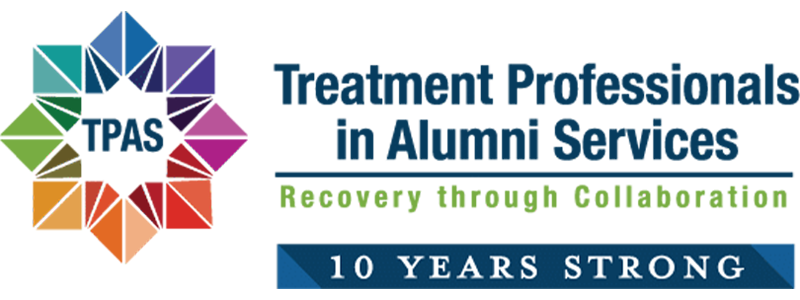When you are suffering from addiction, the thought of putting your life on pause to go to treatment can sound daunting. Work responsibilities, family obligations, and other needs can seem impossible to separate from. In addition, it can be embarrassing at first, due to the stigma of addiction, to admit that you have a substance abuse issue and need help. This can cause many individuals to avoid treatment altogether, or find less effective ways to treat their addiction, such as attempting to recover independently without rehab. If you are suffering from substance abuse issues, keep reading to learn more about whether addicts can recover without rehab and how luxury rehab facilities can give you the best chances for long-term recovery.
Dangers of Recovery Without Luxury Rehab Facilities
It’s time to start thinking of addiction as any other kind of life-threatening ailment you might be fighting. You would never attempt to cure diabetes or heart issues without help. Trying to cure your addiction without any help can be very dangerous and could even worsen your addiction. Experiencing withdrawal symptoms without the help of medication-assisted detox at a luxury rehab center in Malibu can be highly uncomfortable and increase your risk of relapse.
Withdrawal Symptoms
Withdrawal symptoms that you will experience when you quit cold-turkey include:
- Anxiety
- Agitation
- Headaches
- Nausea
- Sweating
- Shakiness
- Vomiting
- Diarrhea
- Muscle cramps
- Dizziness
- Insomnia
- Delirium tremens
- And much more
These symptoms can be debilitating and dangerous to experience without the help of around-the-clock medical professionals and medications to help carry you through. Medication-assisted detox will do just that. A medical staff specifically trained in the field of addiction and withdrawal symptoms, as well as medications for symptoms and cravings, will help you feel much more comfortable and safe during this process.
Likelihood of Relapse
One of the significant side effects of withdrawal, as mentioned, is intense cravings. Your body is in distress as it works toward rewiring itself back to its natural state without substances. This can cause intense cravings, which lead to relapse. If you have been able to stay sober for a few days, a sudden binge can cause a significant shock to the body. Overdose is very likely during a relapse since the body has been able to rid itself of some toxins, and tolerance and dependence have gone down.
Luxury rehab facilities make sure everything is in place to prevent a relapse from occurring. In addition to medications that help curb cravings, you will be surrounded by loving and understanding support to carry you through. We make sure you are in close contact with your family and other support systems, as well as all the comforts and luxuries of a luxury rehab center in Malibu to help you destress.
Understanding Addiction
When wondering if addicts are able to recover without rehab, it is crucial to understand the disease of addiction and how it impacts the brain. The more you know about addiction, the more you will understand the need for the help of a luxury drug or alcohol rehab facility.
Quitting drugs or alcohol is much more complex than “just quitting.” You have likely heard over and over from family and loved ones about how you need to slow or stop your use. The issue is: Addiction makes that impossible. One of the hallmarks of addiction is the inability to slow or stop your use. Other symptoms of addiction include:
- Overactive or underactive
- Weight loss or gain
- Sleep issues
- Multiple prescriptions at multiple pharmacies with multiple doctors
- Isolation from friends, family, and loved ones
- Loss of interest in things you once found enjoyable
- Using at inappropriate times and places
- Issues at work or school
- Secretiveness, lying, or stealing
- Changes in social groups
- Letting down your loved ones
- Loved ones expressing concern
- Frequently creating volatile situations, such as arguments
- Most thoughts are consumed with drugs or alcohol
Tolerance and Dependence
When understanding addiction, learning the cycle of tolerance and dependence is essential. There are four stages to this, including:
- Euphoric high. When you use drugs or alcohol, you experience a temporary euphoric high.
- Crash. When the high is over, you will feel hungover. Anxiety and depression will also skyrocket due to the absence of dopamine.
- Tolerance. When you try to achieve the euphoric high again, you will find that you need to use more than you initially did.
- Dependence. Through needing to use more than you initially did, your body becomes dependent on the substance in order to function. Withdrawal symptoms and cravings are now present.
Triggers and Boundaries
Learning your triggers and establishing boundaries is an integral part of addiction treatment that you will not be able to find out on your own without the help of rehab.
- Triggers. Understanding your triggers, how to work through them, what to do when they arise, and when to avoid them are fundamental aspects of recovery. Addiction professionals will help you pinpoint them, as well as give you the tools you need to work through and overcome them when they arise again. You will also be provided with a comprehensive relapse prevention plan that lists all your triggers and how to handle them.
- Boundaries. Establishing boundaries for yourself, your family, and your care is essential. What can your family do, specifically, to ensure your sobriety? Things can include not keeping alcohol in the home, working on communication, rebuilding bonds and trust, and much more. Through family treatment and therapy, all of these can be established at luxury rehab facilities.
Addiction as a Symptom
Addiction is never a stand-alone condition. There is something that is causing the addiction, which is critical to understand that addiction is actually a symptom of a more significant issue. It’s very similar to the old saying of putting a bandaid on a broken bone. A bandaid is not substantial enough to help the injury, and the fractured bone remains underneath, untreated and worsening. In order to fully heal, the broken bone needs the right kind of support and treatment.
Similarly, individuals who are suffering from addiction need to receive psychological treatment in addition to becoming sober. Going through detox and becoming physically sober is just part of the process; learning how you became addicted to substances and how to stay sober is the other part.
Understanding the Root Cause of Addiction
There are many different reasons an individual could have become addicted to drugs. They can be diagnosed, undiagnosed, conscious, or not. Some of these include:
- Family history of addiction. When an individual grows up in a home with adults who suffer from addiction, they will inherently learn poor coping skills. Addictive behaviors also become normalized for them and, as such, have a higher likelihood of suffering from addiction themselves.
- Trauma. Experiencing trauma is a common root cause of addiction. Abuse, near-death experiences, childhood trauma, war, and other types of Post-Traumatic Stress Disorder will cause people to seek relief from their symptoms in drugs or alcohol.
- Mental health disorders. Anxiety, depression, bipolar disorder, schizophrenia, OCD, sexual and gender issues, and much more can cause individuals to self-medicate with drugs and alcohol.
- Chronic pain. Individuals who suffer from chronic pain can quickly become addicted to their prescription medication and other substances while trying to recover. Substances can worsen chronic pain over time, making it more and more challenging to treat.
Co-Occuring Disorders and Dual Diagnosis
In order to successfully recover from addiction, the root cause needs to be treated at the same time. If it is not, one will eventually exacerbate the other, and the conditions will assuredly resurface again. Dual diagnosis is the treatment protocol for co-occurring disorders.
Luxury rehab facilities, such as The Pointe Malibu Recovery Center offer highly individualized treatment plans to address the root cause of addiction. Everyone who enters rehab is suffering from varying root causes of varying degrees, and this is why crafting a treatment plan to address your specific needs is crucial for recovery. This cannot be done at home without the help of rehab or, more specifically, a luxury rehab.
Best Chance for Long-Term Recovery with Luxury Rehab Centers
The simple answer to whether addicts are able to recover without rehab? It is virtually impossible. Relapse is inevitable without assistance through detox, treatment of the underlying condition, and an individualized treatment plan. While relapse is part of addiction recovery, it should be avoided at all costs.
The Pointe Malibu Recovery Center offers:
- Custom-appointed residential suites
- Mesmerizing oceanfront vistas
- 5-star concierge-style service
- Elite-level comforts
- Freedom to maintain your business and professional commitments
- Healthy gourmet dining
- Walks on the beach
- Unique Integrated Care Alliance involving key difference-makers in your life
- Highly individualized 5:1 staff-to-client ratio
- Evidence-, abstinence- and holistic-based treatments to rejuvenate your mind, body, and spirit
- Elite concierge-style service offering personal attention
- Ultra-private, discreet environment for recovery
Our Clinical Director heads our assessment team, which includes:
- Internal Medicine / Addictionologist, who conducts the introductory physical, learns your medical history and oversees your detox and stabilization.
- Psychiatrist, who does a psychiatric evaluation and a review of your medication history. Your psychiatric history is also detailed to determine brain health and functioning. If necessary, the psychiatrist will prescribe and monitor psychotropic medications during your treatment stay.
- Other Specialists (as indicated) may be consulted, and neuro-psych testing recommended should the evaluation reveal other medical, psychiatric, and clinical issues.
Integrated Care Alliance
The centerpiece of our treatment philosophy is our Integrated Care Alliance. It establishes an interconnected support structure for you and provides you with a complete Continuum of Care that extends well beyond your discharge from our facility.
The Alliance consists of our respected clinical and medical staff, your referring professional, your family of choice, and, of course, you. By linking all of the key recovery participants into a unified group working toward common goals, healing can progress in a more robust, more positive manner. Through this, you can feel confident that there are people in your corner even after returning to the outside world.
About The Pointe Malibu Recovery Center
We understand that drug and alcohol rehab is filled with unknowns. The stigma of addiction can cause you to feel embarrassed, ashamed, or in denial. However, addiction is a progressive disease that only gets worse. It is imperative that you seek treatment as soon as possible rather than attempting to get sober on your own. Without the help of luxury rehab facilities, you may be facing a deadly overdose.
The Pointe Malibu Recovery Centers’ highly trained and experienced physicians, nursing staff, and clinicians guide you through the medical detox and stabilization process, all the way through to the end of your treatment stay.
Our medical team works closely with each client to minimize the acute physical symptoms of withdrawal associated with stopping drug and/or alcohol use. Nursing care and Incidental Medical Services (IMS) are available around-the-clock to monitor clients’ status, provide relief from withdrawal symptoms, and ensure clients’ safety. Our medical approach utilizes medications to reduce the severity of withdrawal symptoms and vastly diminishes any risk of life-threatening dangers during stabilization.
After stabilization, you will be ready to receive individualized counseling. This can include one-on-one, group, and family sessions. You will effectively learn the tools needed to stay sober and treat any underlying causes and conditions, as well as what to do once you leave treatment.
If you’re ready to start your family’s journey to long-lasting recovery, we are here for you.





